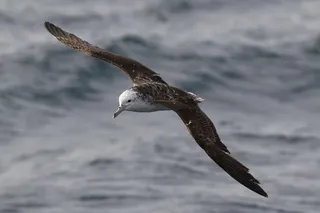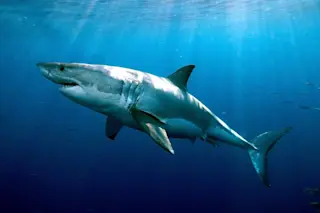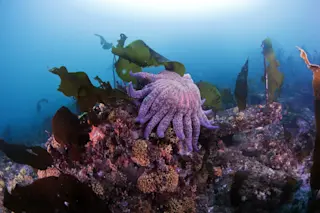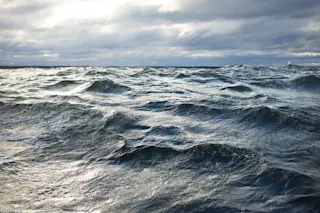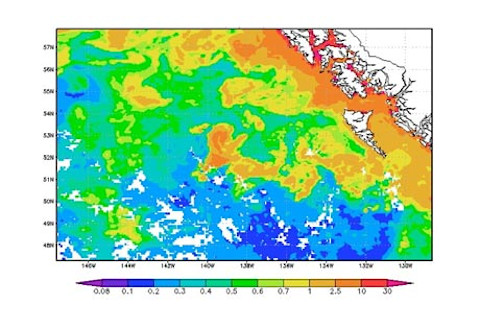
The yellow and brown on this map of the western Canadian coast represent high concentrations of chlorophyll.
A California businessman lobbed 110 tons of iron into the ocean off the western coast of Canada this July, The Guardian
revealed on Monday, and he did it in violation of two international moratoria on such activity. Russ George wanted to stimulate the growth of phytoplankton to sell carbon credits
for the carbon dioxide that the tiny photosynthesizing organisms would take out of the atmosphere. Satellite images from August (above) showed that about 10,000 square kilometers of ocean greenery had already grown. This sort of iron dumping project is called "ocean fertilization"
because the iron acts like fertilizer to stimulate phytoplankton blooms. Scientists debate
whether or not this will actually sequester carbon, though one European experiment reported positive results
this summer, and they worry about the damage that might be wrought by such dumping
. In addition to being scientifically controversial, ocean fertilization is banned by the UN's Convention on Biological Diversity
and the London Convention on marine dumping
. Apparently, none of this deterred Russ George. Neither did his past failures: In 2007, he established a company, Planktos Inc., and tried to "fertilize"
waters near the Galapagos and Canary islands in 2007 but aborted the plan
when the business venture failed and his boats were banned from Spanish and Portuguese ports. This time around, he established a company, Haida Salmon Restoration Corporation, in order to carry out his plans and got a local village to invest $1 million in it. George told the paper the two bans were but "mythology." The UN Convention on Biodiversity is meeting this week in India. Several governments and other groups are calling for them to upgrade the moratorium and give it some way of being enforced. Image via Giovanni/Goddard Earth Sciences Data and Information Services Center/NASA









